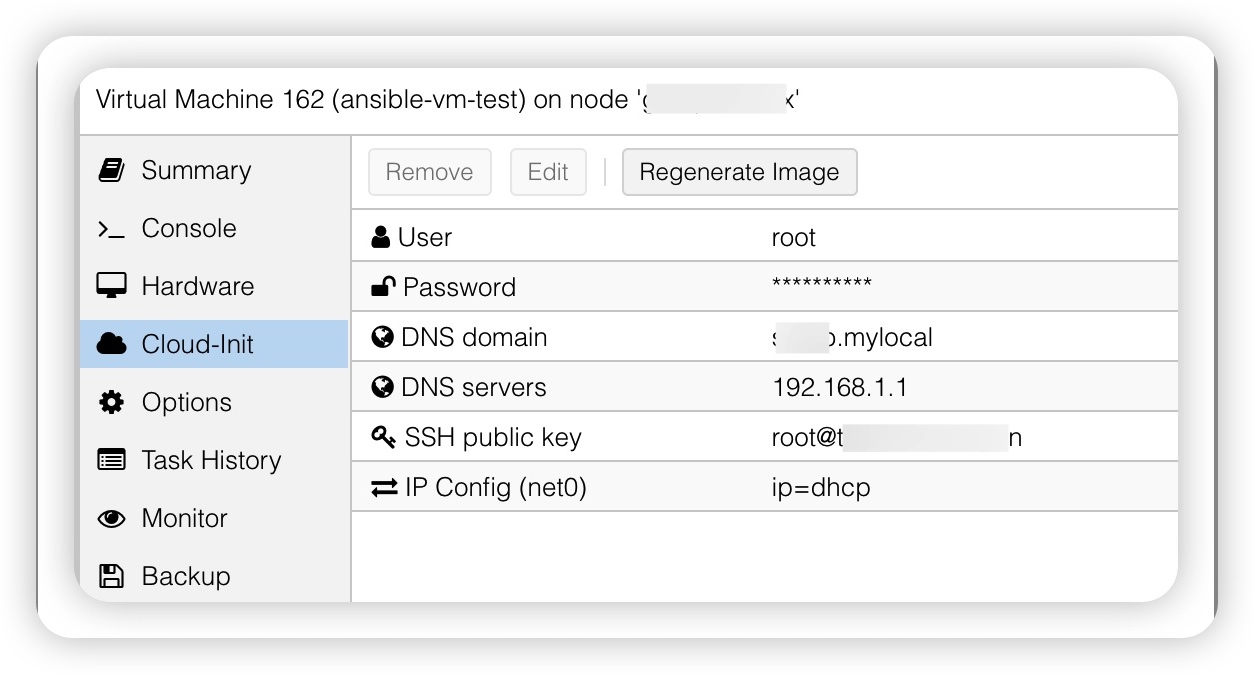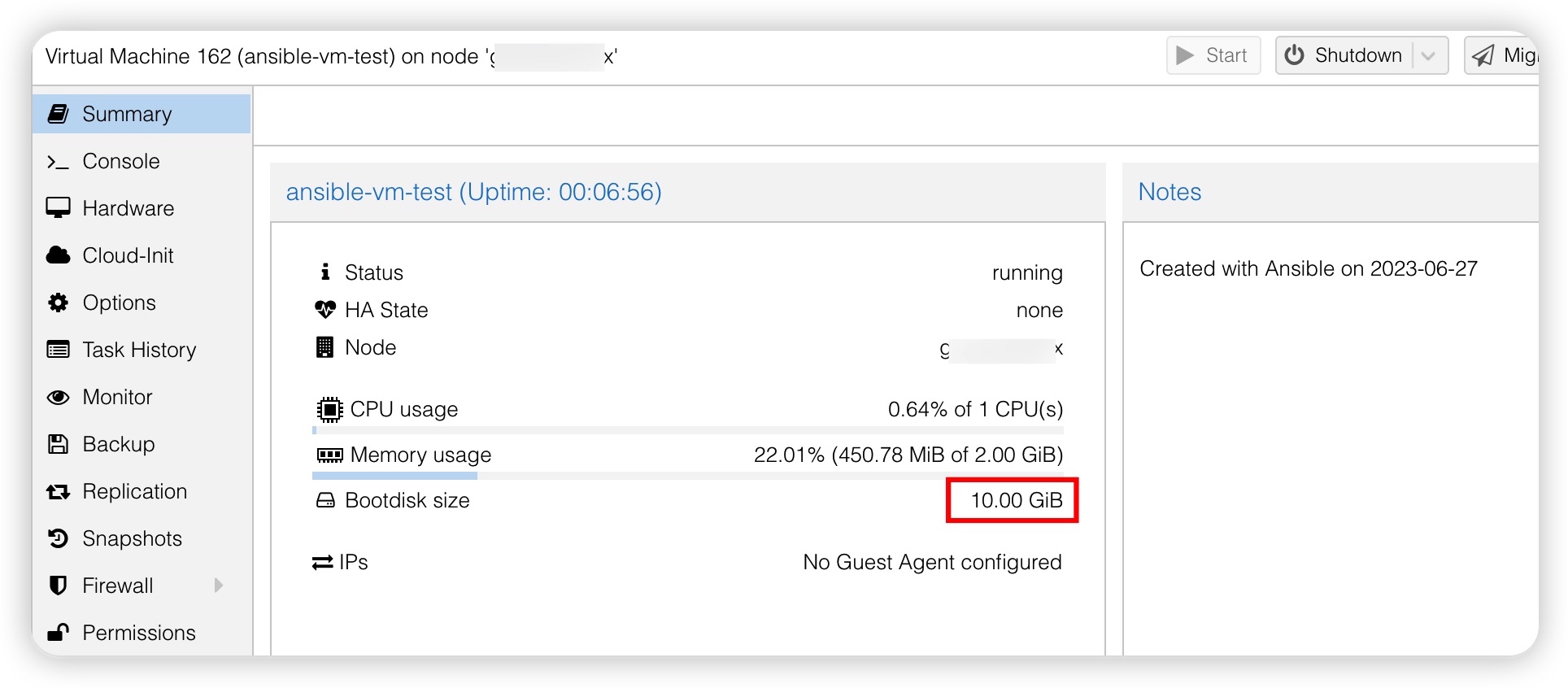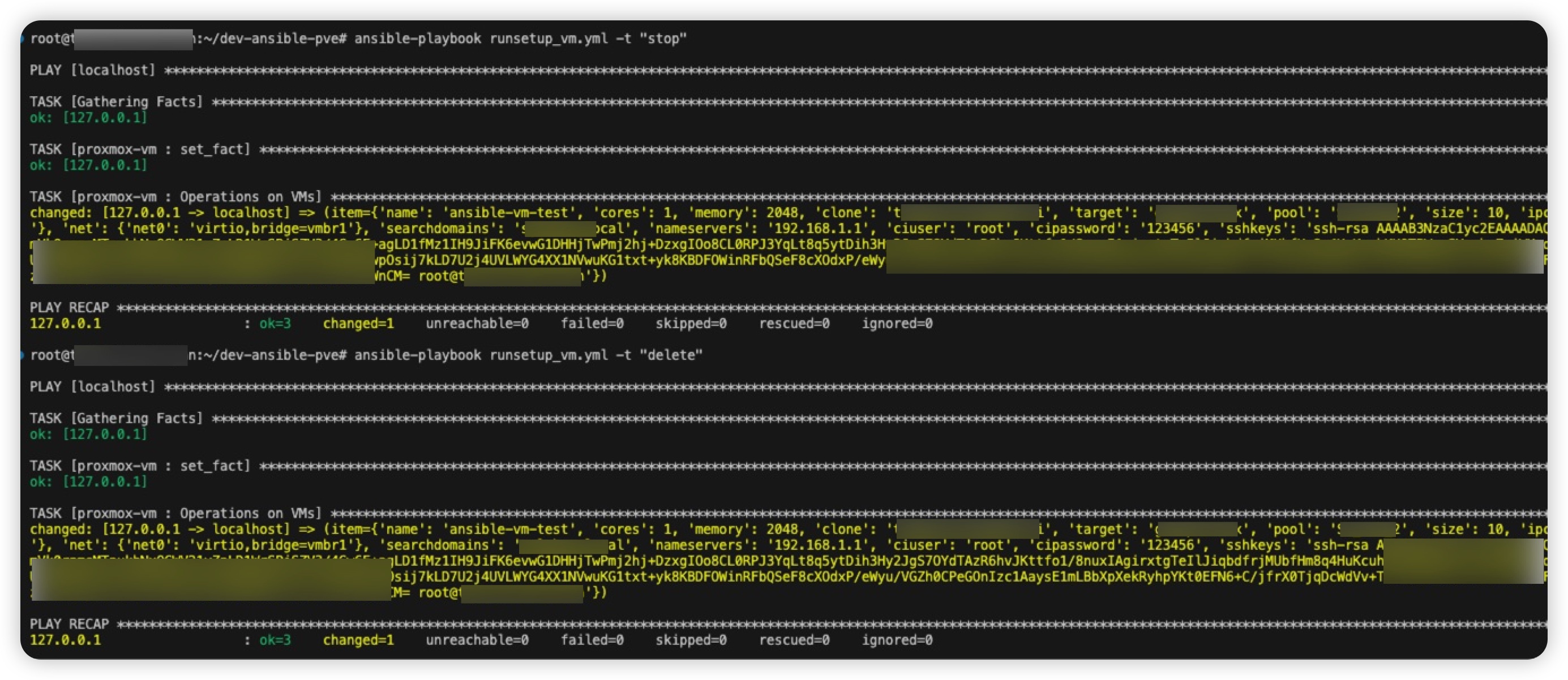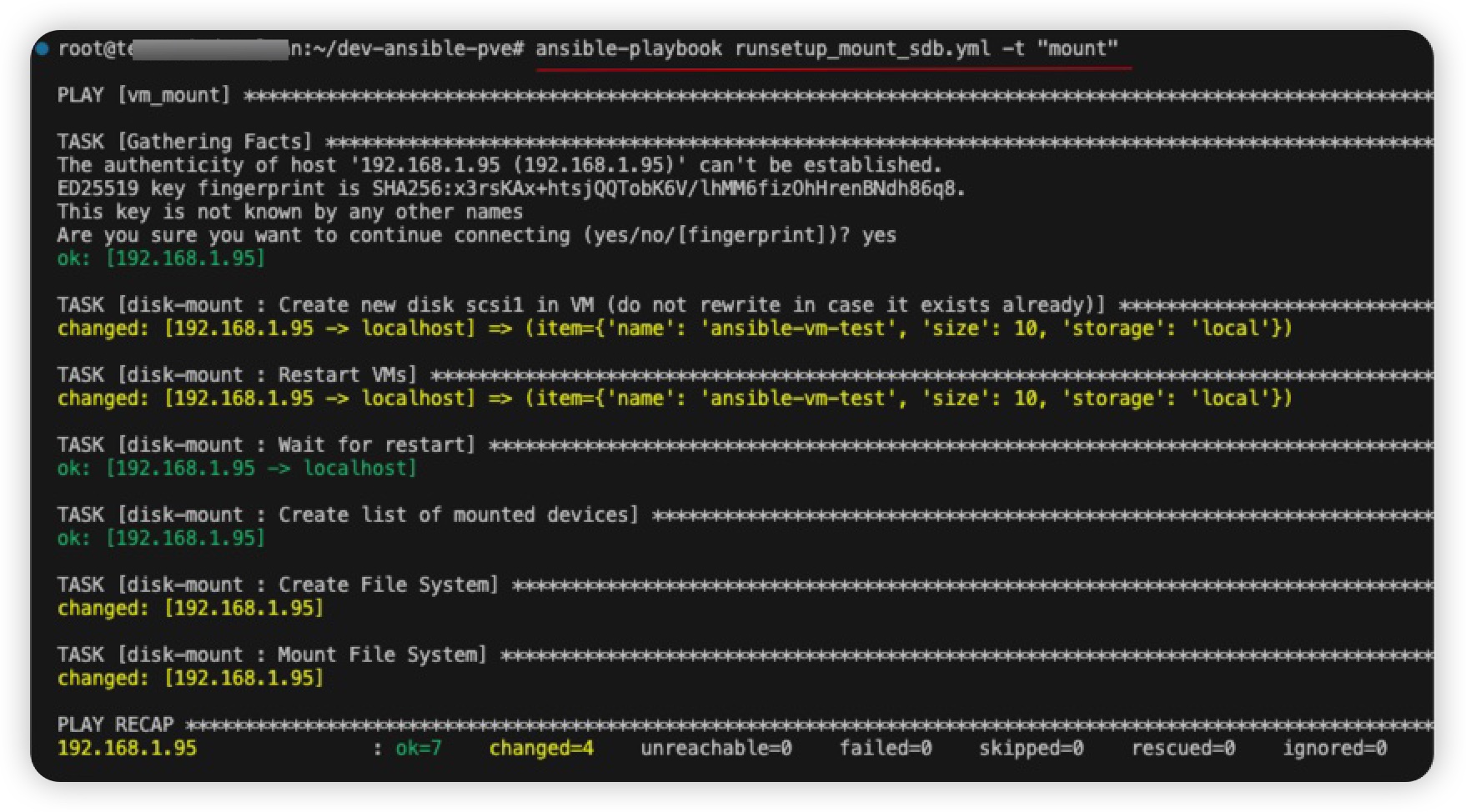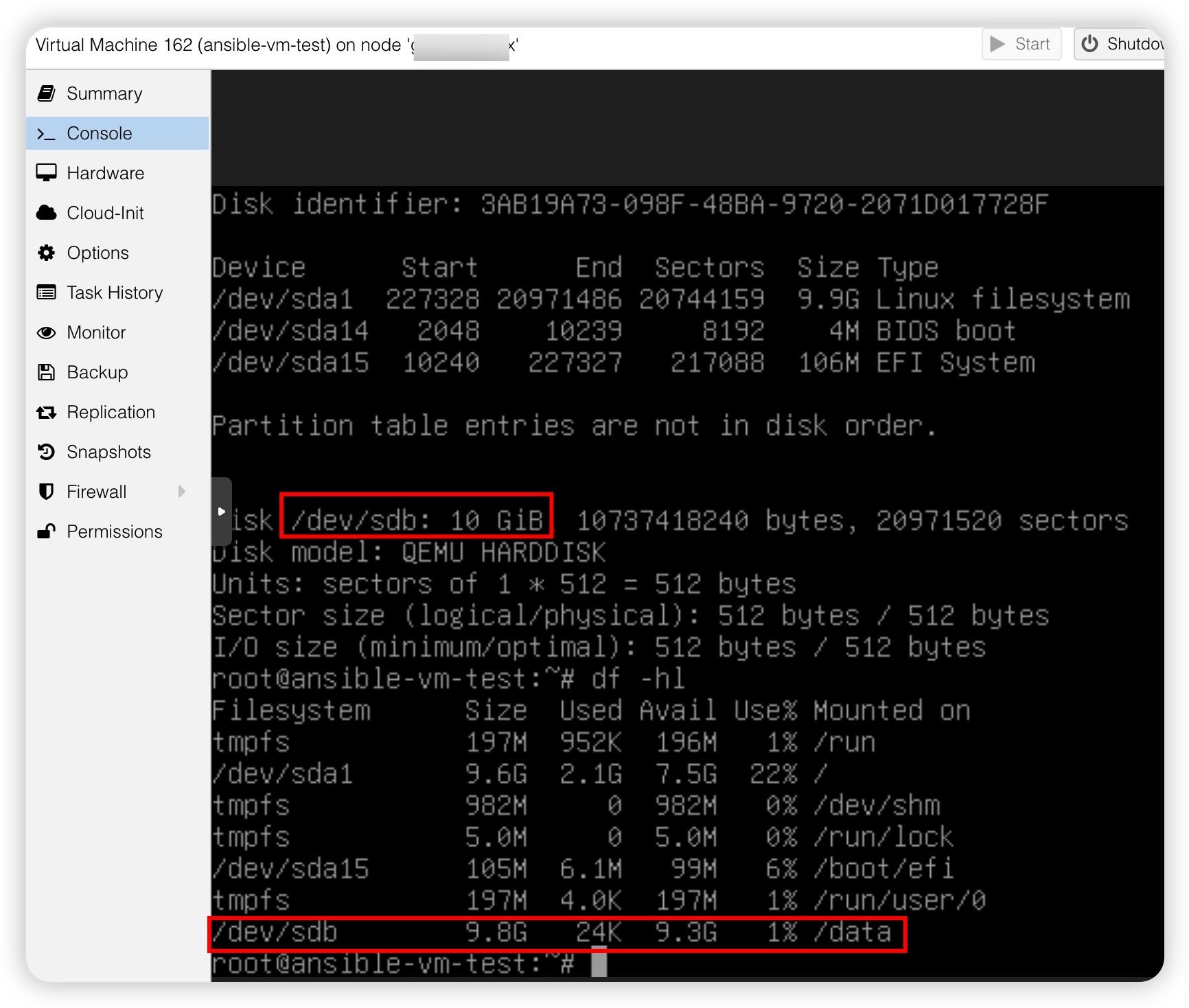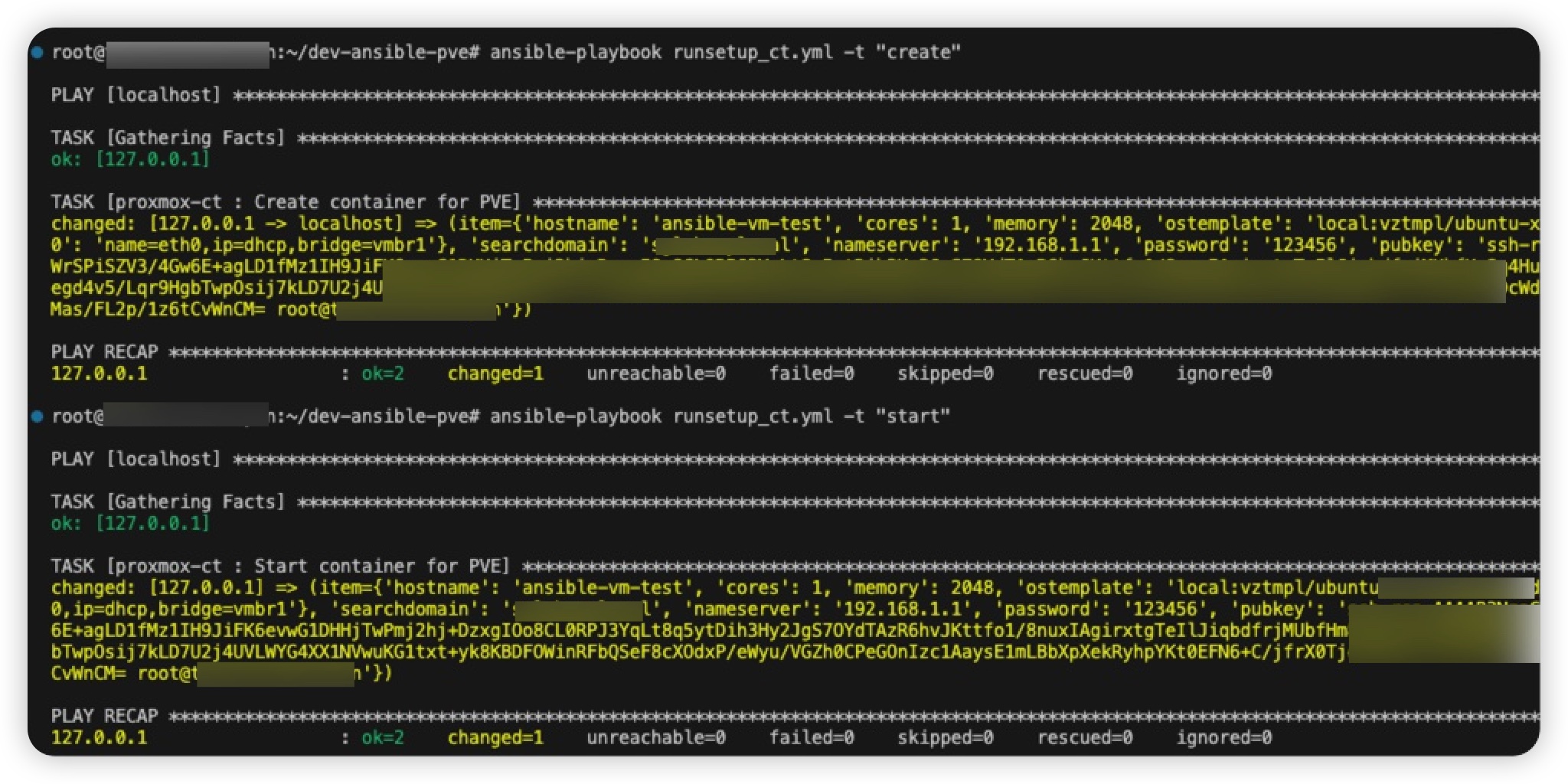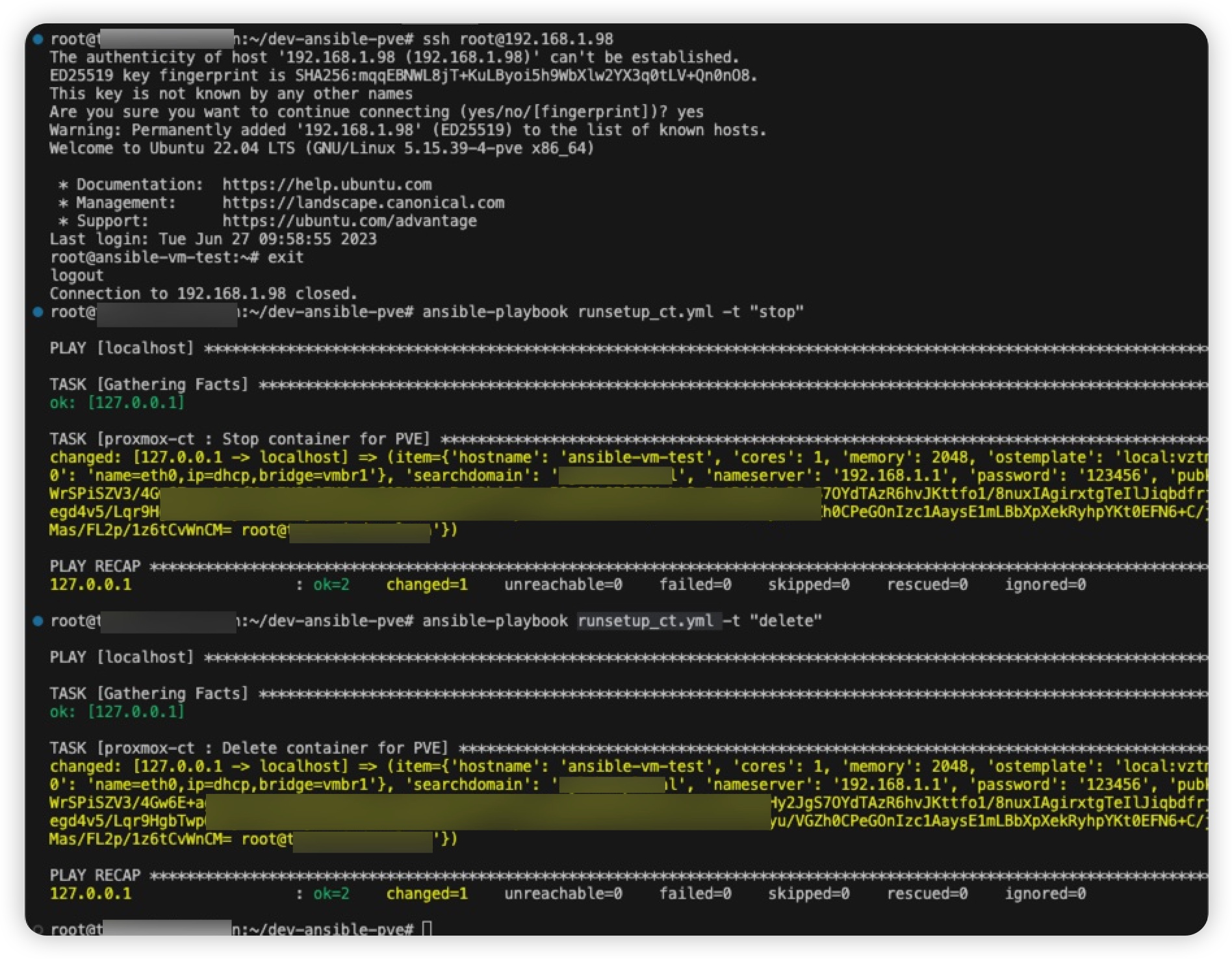Note This repo is re-built based on Ansible role to create/delete VM/containers on proxmox as I encountered several issues while testing in my env.
Fixed issue list:
- When using vm template to clone a new VM, bootdisk can't be resized. Resolve by running proxmox rest api to resize the bootdisk size.
- The VM can't be started after creation. Resolve by adding some sleeping time between main steps.
- Ansible role to create/delete containter is not included.
- Ansible role to mount new disk is not included.
See requirements.txt.
Use this command to install all requirements:
python3 -m pip install --user -r requirements.txt
ansible-galaxy collection install community.generalExport your vault_pass(Save the vault pass in a safe place, you'll need it to encrypt/decrypt existing vault file)
set +o history
export VAULT_PASSWORD=CHANGEME
set -o historyModify and setup proxmox credentials in ./roles/ansible-proxmox-vm/defaults/main.yml
Note: Only root@pam account is accepted for full management.
And then encrpyt it with ansible-vault
ansible-vault encrypt ./roles/ansible-proxmox-vm/defaults/main.ymlSee ./roles/ansible-proxmox-vm/defaults/globals.yml for the complete list of variables.
See also proxmox_kvm module page.
Module community.general.proxmox_kvm that can be found in collection community.general.
Define a list of virtual machines in this format:
vm_list:
- name: ansible-vm-test
cores: 1
memory: 2048
clone: 'template-ubuntu2204-ci'
#ostype: 'l26'
target: 'home-proxmox'
pool: 'test-local'
ipconfig:
ipconfig0: 'ip=dhcp'
#ipconfig0: 'ip=192.168.1.2/26, gw=192.168.1.1'
net:
net0: 'virtio,bridge=vmbr1'
searchdomains: 'homelab.mylocal'
nameservers: '192.168.1.1'
ciuser: 'root'
cipassword: 'CHANGEME123' # password of the new vm, no need to specify it if using ssh key
sshkeys: 'ssh-rsa AxxxxCM= root@my-pc'If you don't want to creat new vmlist file as vars, the default one under ./roles/ansible-proxmox-vm/defaults/main/vmlist will be used.
Execute playbook with tags:
# To create VMs as defined under `./roles/ansible-proxmox-vm/defaults/main/vmlist`
ansible-playbook runsetup_vm.yml -t "create"# To destroy VMs as defined under `./roles/ansible-proxmox-vm/defaults/main/vmlist`
ansible-playbook runsetup_vm.yml -t "stop" # stop the vm before destroy it
ansible-playbook runsetup_vm.yml -t "delete"If you wan to add additional disk other than the boot disk, try disk-mount role.
Export your vault_pass (ignore this step if it's done)
set +o history
export VAULT_PASSWORD=CHANGEME
set -o historyModify and setup proxmox credentials in ./roles/disk-mount/vars/main.yml
And then encrpyt it with ansible-vault
ansible-vault encrypt ./roles/disk-mount/vars/main.ymlModule community.general.proxmox_kvm that can be found in collection community.general.
By default, sdb device will be added after assigning new disk to a VM at the first time and scsi1 will be used to set the disk name.
More settings, check ./roles/disk-mount/defaults/main.yml
Check inventory to ensure the VM is defined correctly under vm_mount section.
Execute playbook with tags:
ansible-playbook runsetup_mount_sdb.yml -t "mount"Same requriements and dependencies with VM management.
Define a list of virtual machines in this format:
vm_list:
- hostname: ansible-ct-test
cores: 1
memory: 2048
ostemplate: 'local:vztmpl/ubuntu-standard_amd64.tar.zst'
pool: 'test-local'
disk: 5
netif:
net0: 'name=eth0,ip=dhcp,bridge=vmbr1'
searchdomain: 'homelab.mylocal'
nameserver: '192.168.1.1'
password: 'CHANGEME123'
pubkey: 'ssh-rsa xxxxxxxxCM= root@MY-PC'If you don't want to creat new vmlist file as vars, the default one under ./roles/ansible-proxmox-vm/defaults/main/vmlist will be used.
Execute playbook with tags:
# To create and start containers as defined under `./roles/ansible-proxmox-ct/defaults/main/vmlist`
ansible-playbook runsetup_ct.yml -t "create"
ansible-playbook runsetup_ct.yml -t "start"# To destroy VMs as defined under `./roles/ansible-proxmox-ct/defaults/main/vmlist`
ansible-playbook runsetup_ct.yml -t "stop" # stop the container before you can destroy it
ansible-playbook runsetup_ct.yml -t "delete"

